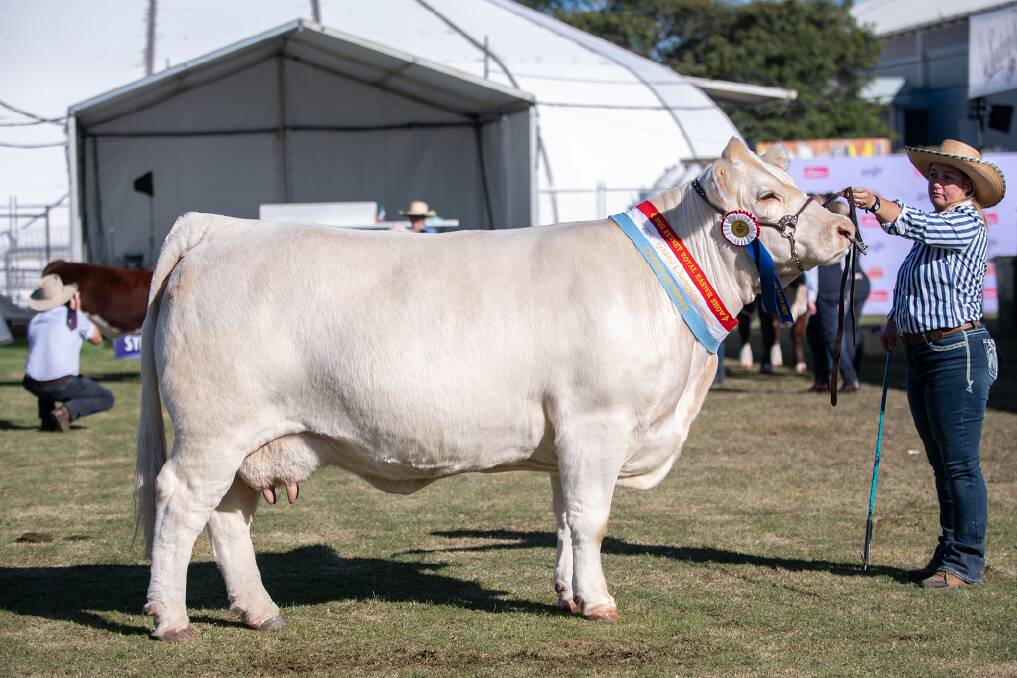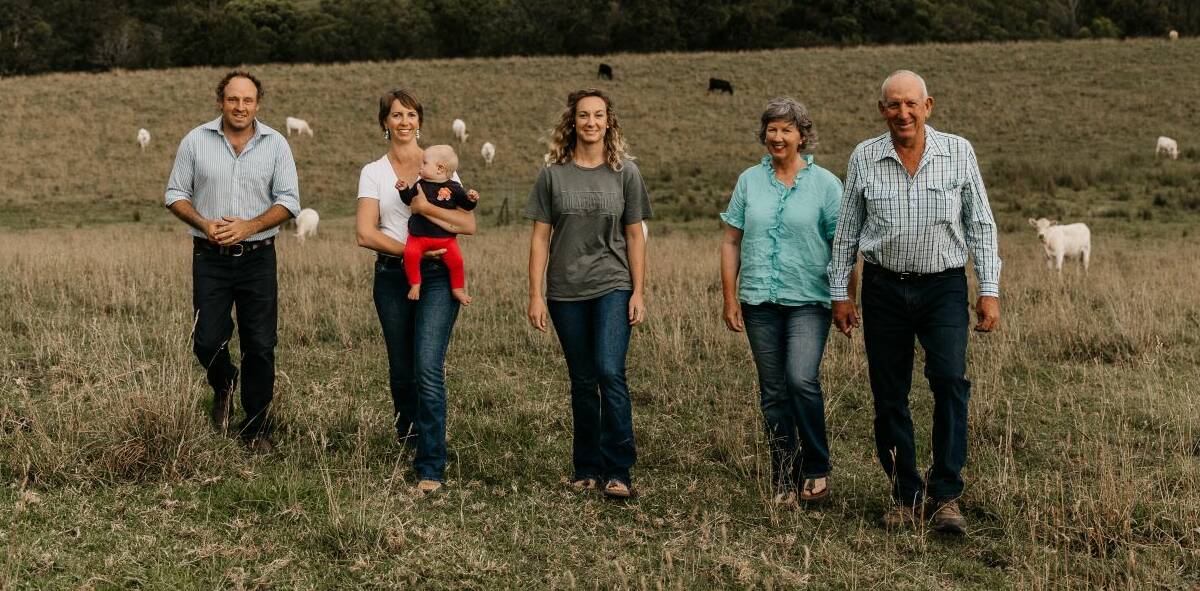Frizells flourish in family farming: Wakefield legacy strong

This is branded content for Wakefield Charolais & Angus
Wakefield has been in the Frizell family since their Irish ancestors settled at the property in the 1860s.
The family business consists of three properties on the NSW Northern Tablelands, Wakefield, Chandler and Ridgemount.
The stud is run across all properties, with the annual bull sale held at the home block in the sale complex at Wakefield.
With an altitude of 980 metres, the winters are brisk, with an average of over 90 frosts per year. The cattle are well acclimatised to temperature extremes, ranging from -12 degrees in the winter to 38 degrees in the summer.
Stud principals Greg and Jenny Frizell are assisted in the running of the properties by their daughters Lucy and Claire.
Lucy and her husband Chris live and work on the farm, running a commercial herd of cows as part of their paddock-to-plate beef business, Good Life Beef. Claire has a mobile vet practice and is currently building her surgery at the Chandler block, running commercial cows and helping with the AI programs.
Greg and Jenny are the sixth generation to farm livestock at Wakefield, their children the seventh, and Lucy and Chris's daughter Annie will be the eighth generation. Greg and Jenny feel blessed to have their family live so close to them, choosing to continue farming.
Charolais were introduced into the Wakefield herd in 1970 by Greg's grandfather Jack Frizell.
He used the old French bloodlines Sucre, Crown, Cowcroft Emperor, Excalibur and White Valley Hamish.
In the early days Charolais were used to increase hybrid vigour in the progeny to maximise growth and increase yield. They were used initially over a Shorthorn-based herd with great results.
The Charolais stud was established in 2004, using females purchased from stud dispersals from Ballengara, Dursley and a female from Mount William stud.
In the early years the Frizells ran large-scale Embryo Transfer programs utilising their existing cross-bred cows as recipients for embryos that were purchased from studs across Australia.
In the past two years, DNA from every stud animal has been collected and submitted or genomic evaluation, sire verification and genetic testing.
Jenny Frizell said Wakefield continues to use extensive AI programs sourcing genetics from Australia, NZ and Canada and maintains one of the larger Charolais herds in Southern Australia.
"The Australian Charolais has developed into a more moderate-framed, early maturing animal while keeping their growth and carcase characteristics with the ability to calve easily," Mrs Frizell said.
"Charolais bulls are the most sought-after terminal cross-breeding bull in Australia."
The Angus stud was established in 2009 with the introduction of embryos from Millah Murrah, Eaglehawk, KO and Abbott Angus studs and later purchasing females from Fig Tree Park.
"We decided to sell Angus bulls at our sale as our clients were wanting an option for a bull to use on heifers," Mrs Frizell said.
"Our clients have enjoyed having the option of both breeds at our sale, and as New England is Angus focused it made sense for us to sell Angus in this area.
"We have been concentrating on performance animals with structural correctness and longevity. Our cows must be fertile, milk well and raise a calf every year to stay in our herd," she said.

Wakefield maintains 550 stud females comprising 350 Charolais females and 200 HBR and APR Angus females.
"The selection criteria for both breeds are very similar. We are looking for fertile, good-doing females that are at the top of their breed for dollars earned," Mrs Frizell said.
"Structural correctness is the most important trait in our selection process and many hours are spent checking feet and legs and overall structure.
"We are using selected AI sires across both breeds focusing on correct phenotypes, growth and breed specific carcase traits.
"Our breeding program is based around strong female lines.
"In the Charolais females there are Amaze, Ascot, Ace, Autumn, Abracadabra and Blush lines. In the Angus we have Abigail, Vicky, Flower, Classic, Doris and Jedda.
"We believe that if your cow herd is strong then everything else will follow."
Mrs Frizell said the business is proud of the support received from clients for their breeding program.
"Wakefield sired progeny achieve premiums at saleyards, with cattle sought after by backgrounders, grass finishers and feed lotters," she said.
"It makes all the hard work that goes into AI and ET programs and the selection processes all worthwhile. We can't thank our clients enough for their support.
"While we don't concentrate heavily on the show ring it has been lovely to have great success, including Interbreed Champion Female at the EKKA in 2019 with Wakefield Amaze 38 along with many other highlights."
This year Wakefield will be selling 40 Charolais bulls and 30 Angus bulls at the Wakefield Sale Complex on Friday, August 16, at 1pm. It will be also online with Stocklive Elite.
This is branded content for Wakefield Charolais & Angus


